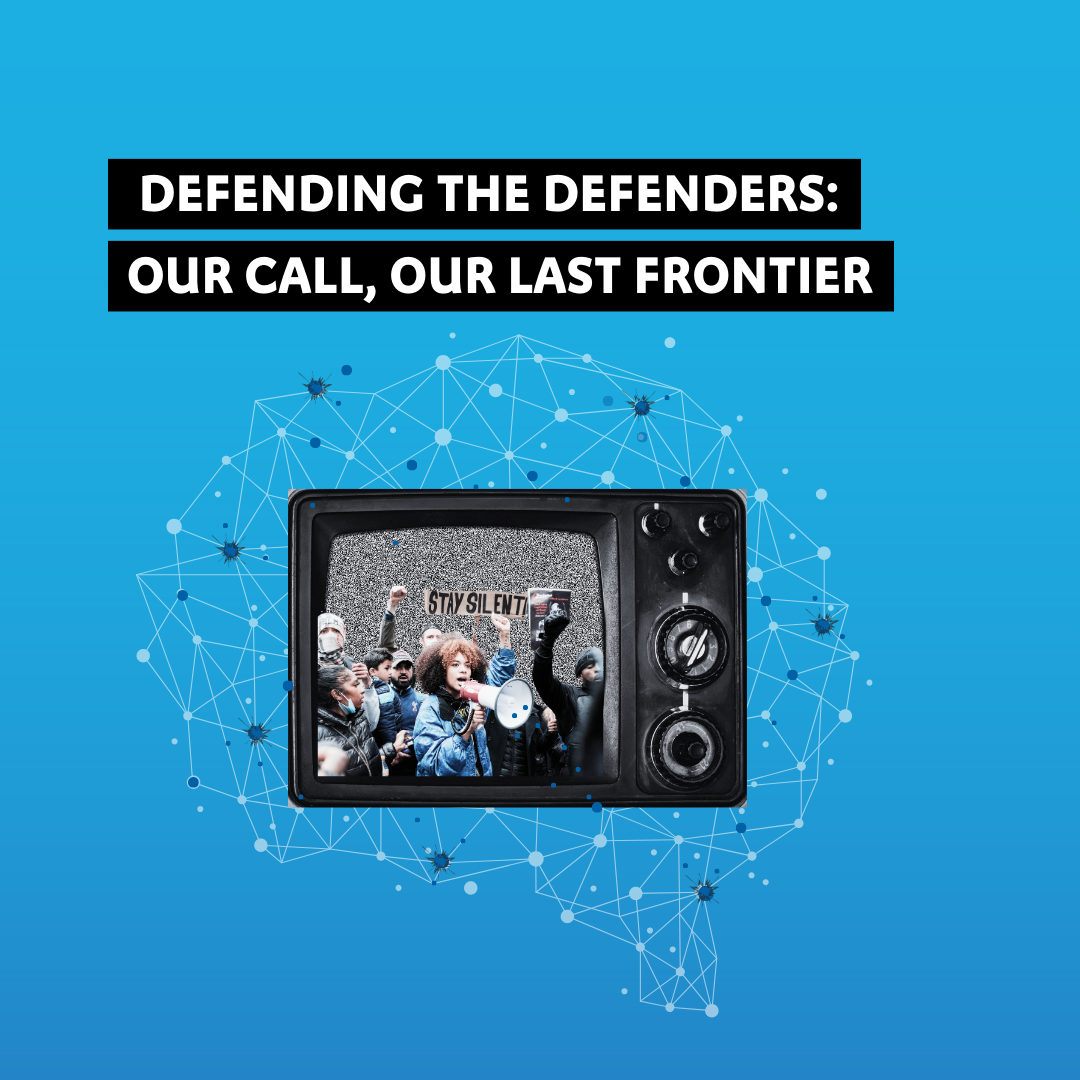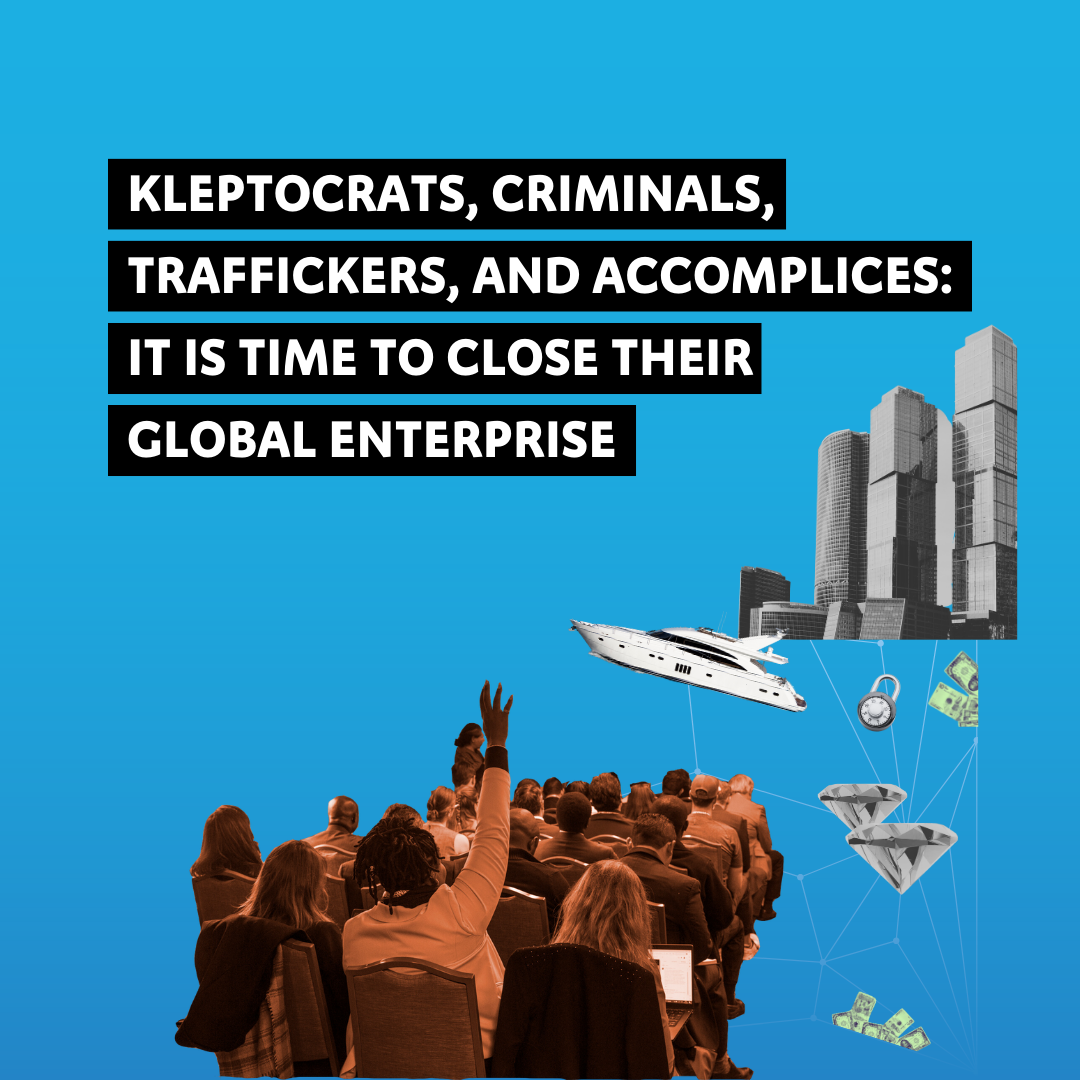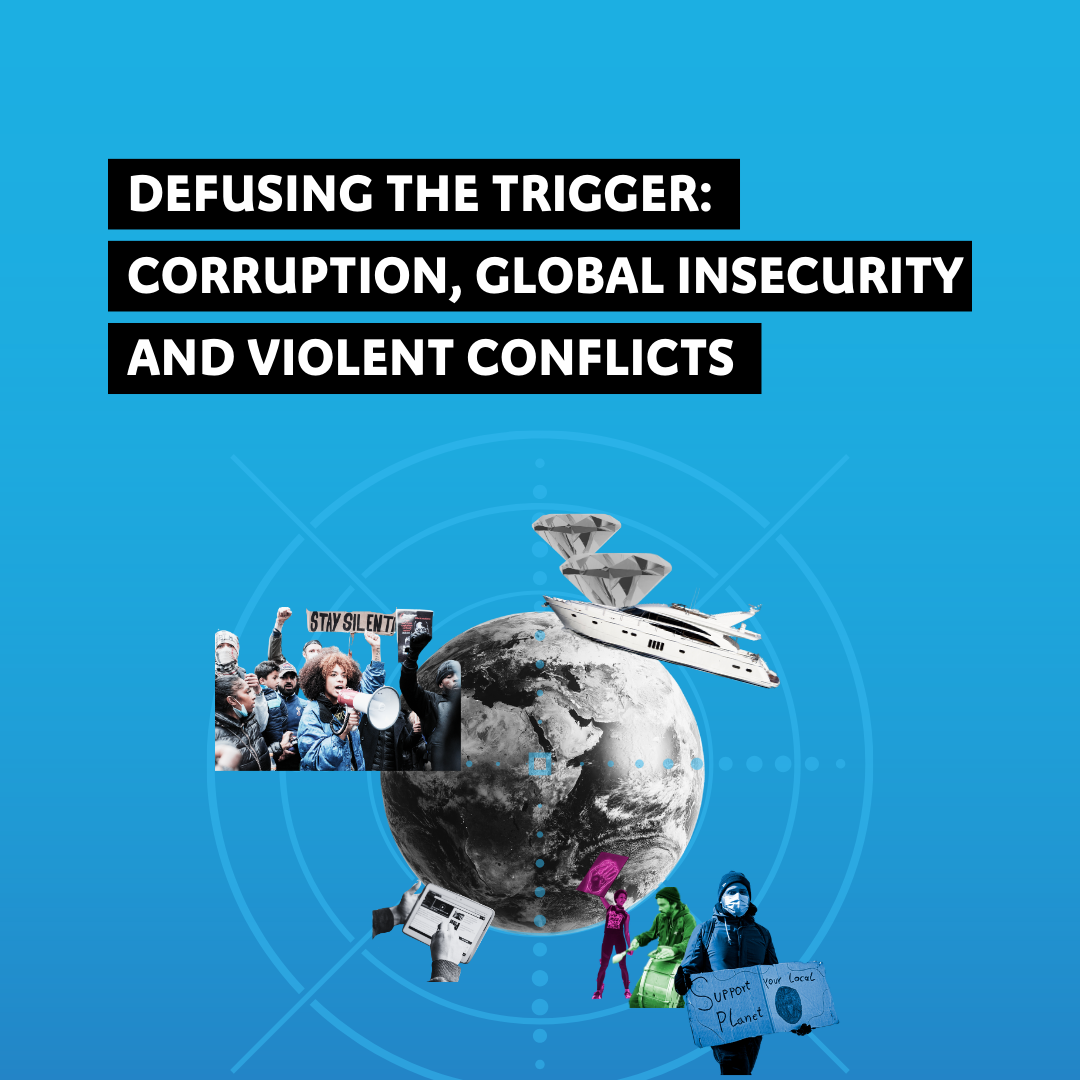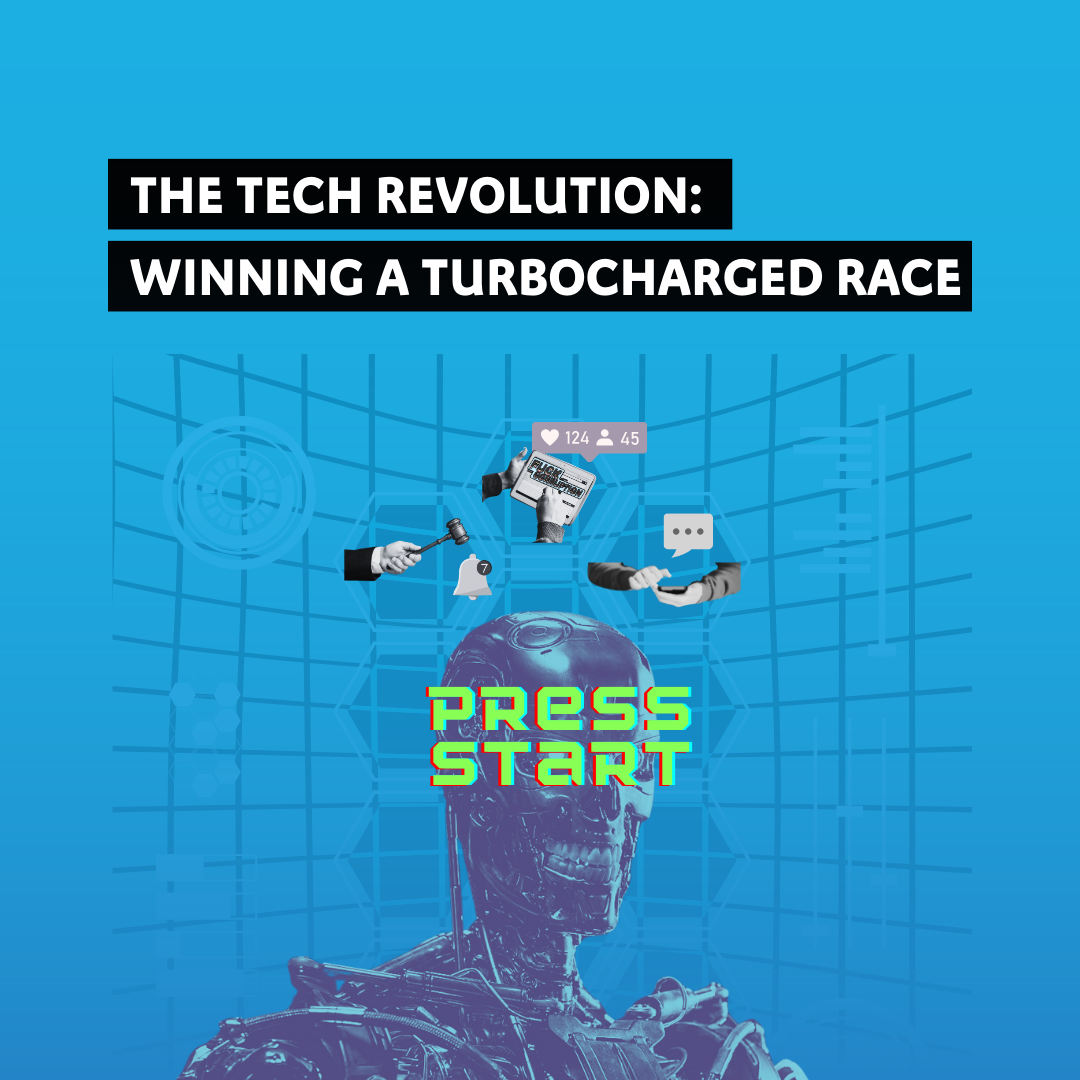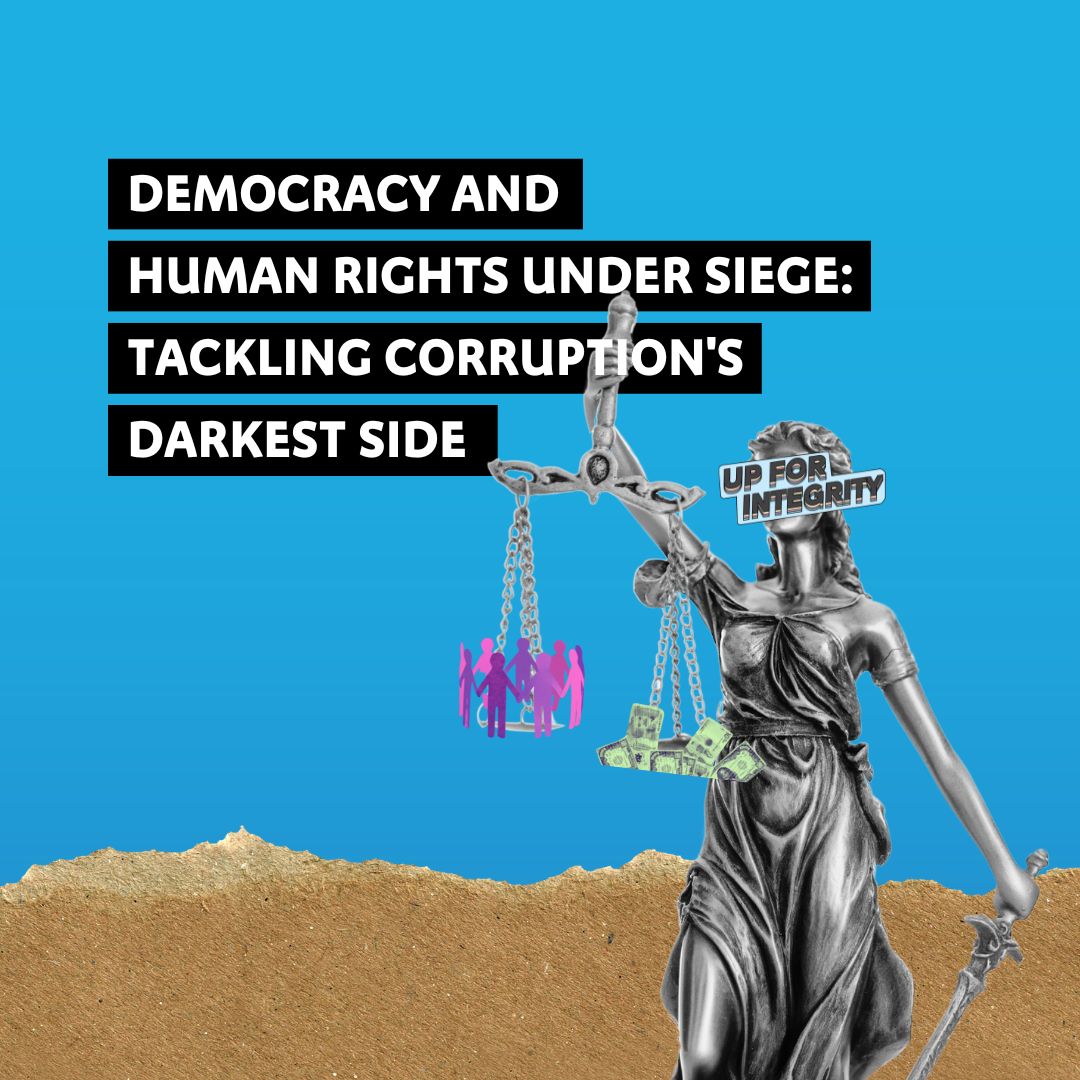View #IACC 2024 Thematic tracks
Building a Global Ethical Economy: Advancing Business Integrity and Its Leaders

Business has a pivotal role in reshaping the global economy and promoting fairness and sustainability for all. Enterprises, from global to local, the tech, retailer and consumer goods sectors are showing that when mixing good will and power, their scale of contribution can be a game changer.
Yet the road to achieve integrity in business is paved with ethical dilemmas, risks and land mines. Challenges that business leaders are increasingly learning to address. This thematic stream calls business leaders of integrity, and the movement at large, to shed light on the opportunities and obstacles to advance a sustainable, equitable, and prosperous world economy by advancing collective action for business integrity.
Workshops
-
From Red Flags to Green Lights: Business Integrity Solutions for Public Procurement
Businesses hold immense power in the fight against corruption within public procurement. This workshop delves into three pillars of Business Integrity Solutions: Collective Action, robust Anti-Corruption Compliance, and integrating ESG strategies, aligning with Transparency International’s Business Integrity Program priorities.
Transparency International Secretariat (TI-S)
Transparency International Secretariat (TI-S), Basel Institute on Governance, Center for International Private Enterprise (CIPE), Poder Ciudadano (TI - Argentina) and ODFJELL
-
Future-Proofing Business: The Integrity Advantage of ESG
The workshop will delve into the critical role integrity plays in achieving ESG goals. Encompassed in this is a broader governance approach that goes beyond the G in ESG, impacting the E and the S of business operations. The question is not just why integrate anti-corruption into ESG, but how? This session answers that with real-world solutions under a transformational governance lens.
The workshop will provide a solutions suite, through case studies of real-world examples of how companies have successfully integrated anti-corruption into their ESG strategies, and the importance of corporate governance in this endeavor.
The session will also introduce the Transformational Governance Corporate Toolkit, which supports companies with a broader approach to the G, guiding them in championing ethical leadership, accountability, integrity, and transparency.
United Nations Global Compact
Novartis, UN Global Compact, Transparency International Malaysia (TI - Malaysia), The B Team and Autostrade per l’Italia
-
Securing Supply Chains: A Private Sector Discussion on Corruption and Illicit Trade (Ws 9.5)
No sector vulnerable to illicit trade is immune from corruption’s effects. Join private sector experts for a dynamic panel discussion on the critical policies and controls needed to prevent corruption and corrupt actors from perpetuating illicit trade and compromising the integrity of the global supply chain.
Transnational Alliance to Combat Illicit Trade
Transnational Alliance to Combat Illicit Trade, Procter & Gamble, Novartis and Pernod Ricard
-
Challenging Paradigms: Leading with Integrity and Gender Perspectives in Masculinized Industries
A conversation between panellists and a moderator will highlight the gaps in female participation in leadership positions, focusing on traditionally masculinised industries. The aim is to visualise the situation, identify actions and implement initiatives that promote gender diversity in such positions. This will be developed in collaboration with the Global Alliance for Integrity’s expert network.
Alliance For Integrity
Alliance for Integrity and Organisation for the Prohibition of Chemical Weapons (OPCW)
-
De-Banking, Corruption and Shadow Economies: How to Respond
This session will highlight the consequences of banks retreating from high-risk jurisdictions (de-banking). Building on lessons from a multi-year OECD program, it will discuss how de-banking fuels corruption and shadow economies, enabling crime and kleptocracy while undermining financial inclusion and aid delivery. The aim is identifying solutions for donors and the private sector to de-banking.
Organisation for Economic Co-operation and Development (OECD)
Organisation for Economic Co-operation and Development (OECD), Standard Chartered, Minister of State for Entrepreneurship and Business Climate - Albania, United States Agency for International Development (USAID) and International Consortium for Investigative Journalists
-
Business Integrity 2.0: Where do we go from Here?
Corruption is a challenge for the global economy. Its effects range from the distortion of markets to unfair competition. This workshop will explore the potential of incentives for business integrity as a driver for change. What is the right mix of sanctions and incentives to strengthen business integrity? How can global forums such as the G20 and B20 leverage the business integrity agenda?
This interactive discussion will build on the momentum created with the first-ever Private Sector Forum held on the margins of a Conference of States Parties to the UN Convention against Corruption in December 2023. It will also follow up on resolution 10/12 on incentives for business integrity that was adopted at the Conference, recognizing the potential of incentives in the fight against corruption, and discuss how the resolution can be translated into practice.
United Nations Office on Drugs and Crime (UNODC) and the United Nations Global Compact (UN Global Compact)
US Department of State, UNODC, Lundbeck (Denmark), Ethics and Anti-Corruption Commission (Kenya), Transparency International Spain and Integrity Organization (Nigeria)
-
Harmonizing (Adaptable) Business Integrity Standards to Advance Business Integrity
The Workshop will launch and invite discussion on the recently (2023) issued harmonized MDB General Principles for Business Integrity Programmes, which set out guidance relating to business integrity programs, including beyond the MDB context, and which can be adapted to entities of all types and sizes and operating in various environments, including fragile-and conflict-affected situations.
World Bank
African Development Bank, Jospong Group of Companies, Asian Development Bank, European Investment Bank and Andrade Gutierrez Engenharia SA
-
Whither Sovereign Wealth? The Nexus of Corruption and Sovereign Wealth Funds
Sovereign wealth funds (SWFs) have an asset value of over $7.5 trillion, but they are often established in countries like Equatorial Guinea, Saudi Arabia, and Russia, marked by corruption, oppression, and weak rule of law. This workshop will educate about SWF corruption risks and help build advocacy for stronger domestic and international checks on their abuse.
Georgetown University
C4ADS, U.S. Treasury Department, Hudson Institute and Transparency International Venezuela (TI – Venezuela)
-
Corruption in Global Supply Chains: Organised Crime’s Deadly Tactic
This workshop will give actors working in the anti-corruption field a richer view of the harmful impact of corruption in global supply chains linked, in particular, to organised crime. Those working on the front line in high-risk areas will share specific challenges while also highlighting new measures to combat them.
World Customs Organization
World Customs Organization (WCO) , Australia Border Force (ABF), Global Initiative Against Transnational Organized Crime (GI-TOC), Transparency International Secretariat (TI-S) and the Maritime Anti-Corruption Network (MACN)
-
Incentivizing the Private Sector as a Game Changer in the Fight Against Corruption
USAID understands that now, more than ever, success in the fight against corruption requires a global response; one that not only strategically engages governments and civil society, but also the private sector. This workshop will explore USAID´s and others´ experience incentivizing private sector engagement to address corruption challenges in a more effective, efficient and sustainable way.
United States Agency for International Development (USAID)
United States Agency for International Development (USAID) Anti-Corruption Center; United States Agency for International Development (USAID) Mexico and Indonesia; Alliance for Integrity (GIZ) and Lundbeck
-
The Face of Transnational Corruption: Cracking Down on Illicit Trade in Falsified Medicines
A multi sectoral debate on the technical and technological challenges related to trafficker impunity
The Global Network for Anticorruption, Transparency and Accountability in Health and the United States Agency for International Development (USAID)
-
Galvanizing the Private Sector: Empowering Small Business to Conduct Monitoring, Advocacy through Collective Action
This workshop highlights SMEs’ role in promoting integrity and fighting corruption through advocacy and collective action. It focuses on identifying effective strategies, discussing challenges, and sharing success stories to inspire and enhance SMEs’ impact on governance and integrity standards across society. Empowered and supported, SMEs are key in detecting fraud and promoting integrity. The workshop will feature businesspersons’ stories from Lithuania, Ukraine, and Nigeria and a global experience from CIPE’s anti-corruption and business integrity programs worldwide. Collaborative efforts with CSOs and journalists further amplify this impact, fostering a national movement for transparency and accountability. The workshop targets SMEs, anti-corruption CSOs, think-tanks, journalists, policymakers, and international donors for collaborative anti-corruption efforts. The workshop is part of the Global Initiative to Galvanize the Private Sector as Partners in Combating Corruption (GPS), of which CIPE is an implementing partner. GPS is supported by the U.S. State Department’s Bureau of International Narcotics and Law Enforcement Affairs.
Center for International Private Enterprise (CIPE)
View #IACC 2024 Thematic tracks
- The Theme & Thematic tracks
- All Workshops #IACC2024
- Defending The Defenders: Our Call, Our Last Frontier
- Greed and Corruption: A Disease Accelerating the Global Environmental Catastrophe
- Kleptocrats, Criminals, Traffickers, and Accomplices: It Is Time to Close Their Global Enterprise
- Defusing The Trigger: Corruption, Global Insecurity and Violent Conflicts
- Building a Global Ethical Economy: Advancing Business Integrity and Its Leaders
- The Tech Revolution: Winning a Turbocharged Race
- Democracy and Human Rights Under Siege: Tackling Corruption’s Darkest Side
- Extras
